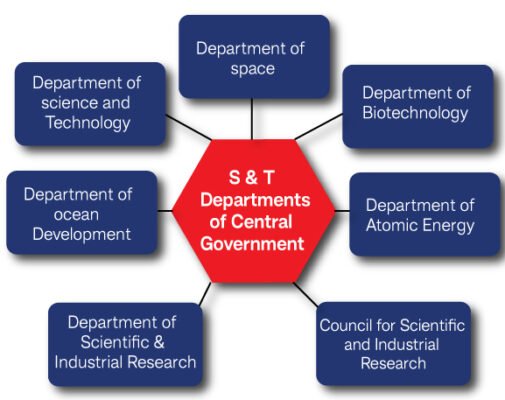AWIP, GS P6 (Economy, Geography, Environment...), Science & Technology, Technology
Q. Discuss the impact of recent developments in science and technology on everyday life in India. Provide examples to illustrate how these advancements have improved quality of life.
India has witnessed a rapid transformation in recent years, largely driven by advancements in science and technology. These developments have significantly impacted various aspects of daily life, enhancing efficiency, accessibility, and overall quality of life.
Healthcare
- Tele-medicine: The advent of telemedicine has revolutionized healthcare accessibility, especially in rural areas. Patients can now consult doctors remotely, reducing travel time and costs.
- Digital Health Records: Electronic health records have improved patient care by providing easy access to medical history, reducing paperwork, and facilitating better coordination among healthcare providers.
- Medical Research: Breakthroughs in medical research have led to the development of new treatments and vaccines for diseases like cancer, diabetes, and tuberculosis.
- COVID-19 Vaccines: The development and rapid deployment of vaccines, including the world’s first intranasal COVID-19 vaccine by Bharat Biotech, have been crucial in managing the pandemic.

Education
- Online Education: The rise of online learning platforms has expanded access to education, especially for students in remote areas. It offers flexibility and a variety of courses.
- EdTech Innovations: The use of AI and VR in education has enhanced learning experiences, making them more interactive and engaging.
- Digital Learning Tools: Educational apps and software have transformed the learning experience, making it more interactive and engaging.
- AI in Education: Artificial intelligence is being used to personalize learning experiences, identify students who need extra support, and automate administrative tasks.
Agriculture
- Precision Agriculture: Technology-driven farming practices, such as drones and soil sensors, have improved crop yields and resource efficiency.
- Mobile Apps: Farmers can access weather forecasts, market prices, and agricultural advice through mobile apps, empowering them to make informed decisions.
- Genetic Modification: Genetically modified crops have shown potential to increase productivity and resistance to pests and diseases.
Finance
- Digital Payments: The widespread adoption of digital payment platforms like UPI has made transactions faster, safer, and more convenient.
- Financial Inclusion: Technology has helped bring banking services to the unbanked population, promoting financial inclusion.
- Online Banking: Internet banking and mobile banking have made financial management easier and accessible from anywhere.
Communication
- Satellite Services: ISRO’s advancements in satellite technology have improved communication, weather forecasting, and disaster management.
- Mobile Phones: The proliferation of smartphones has connected millions of people, facilitating communication, information access, and e-commerce.
- Social Media: Platforms like Facebook, WhatsApp, and Instagram have transformed the way people connect and share information.
- High-Speed Internet: The increasing availability of high-speed internet has enabled faster downloads, streaming, and online services.
Transportation
- Ride-Sharing Services: Apps like Ola and Uber have revolutionized urban transportation, providing convenient and affordable options.
- Electric Vehicles (EVs): The growing adoption of electric vehicles is reducing pollution and dependence on fossil fuels and promoting sustainable transportation.
- Public Transport Apps: Mobile apps for public transportation have improved commuting experiences by providing real-time information on bus and train schedules.
Renewable Energy
- Solar Power: India has made significant strides in solar energy, with large-scale solar farms and rooftop solar installations reducing dependence on fossil fuels and lowering electricity costs.
Startups and Innovation
- Startup Ecosystem: India’s vibrant startup ecosystem, supported by initiatives like Start-up India, has led to innovations in various sectors, creating jobs and driving economic growth.
- Semiconductor Mission: The India Semiconductor Mission aims to make India a global hub for electronics manufacturing, which will have far-reaching impacts on technology and industry.
While these advancements have brought numerous benefits, it’s important to address challenges such as digital divide, privacy concerns, and the potential job displacement caused by automation. Nevertheless, the overall impact of science and technology on everyday life in India has been overwhelmingly positive, contributing to a more connected, efficient, and prosperous society.


